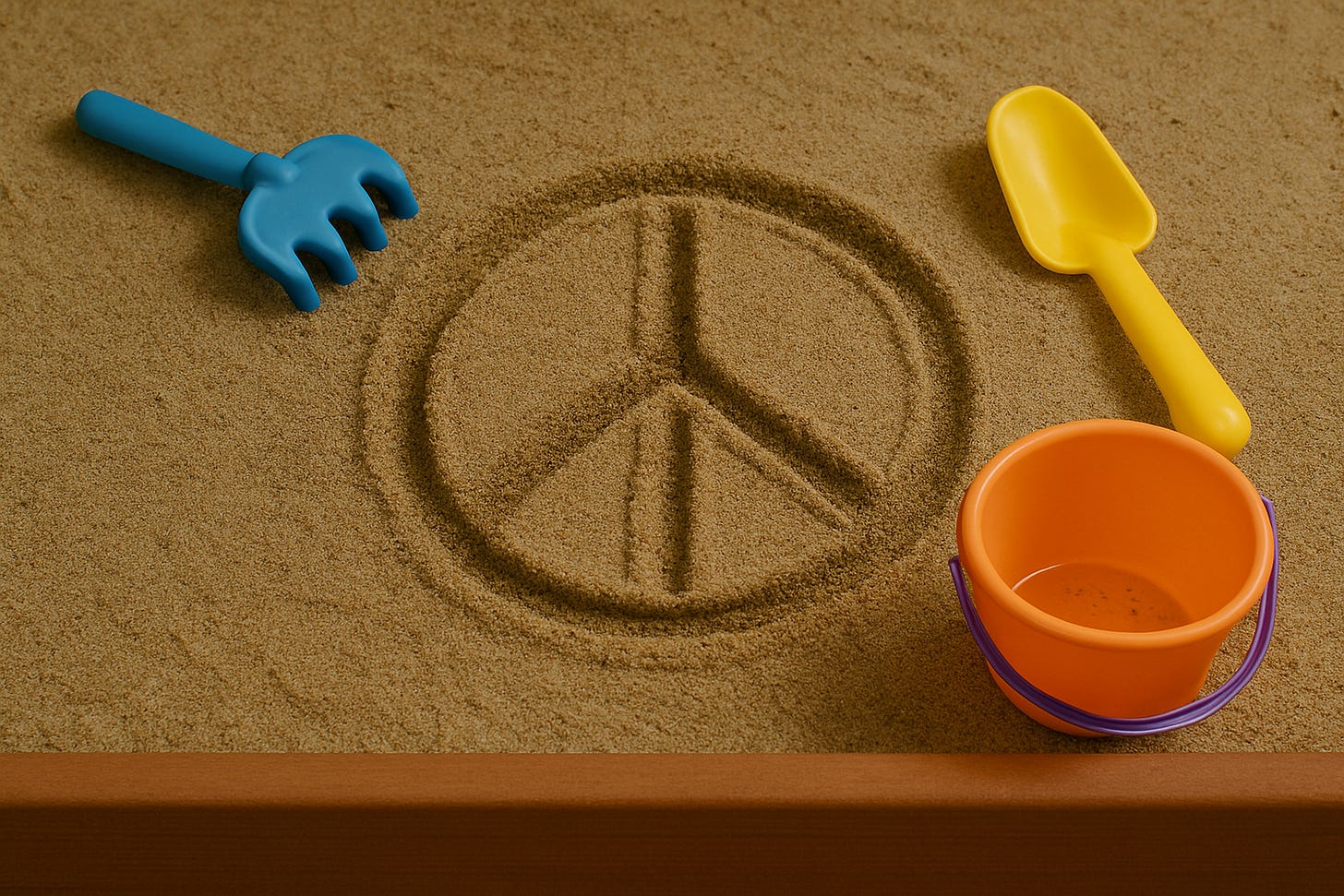No matter the party, politics, intelligence, wisdom, rank, religion, race, or sex, when it comes to war, too many adults act like children.
Think about it. The absolutely only thing predictable about fighting—be it with plastic shovels in the sandbox, fists in high school, guns in the street, or weapons of mass destruction in a desert or city—is that people will get hurt. Blood will be spilled. Guts will gush from bodies.
Men, women, and children—innocent and not-so-innocent—will die. Our brothers, sisters, fathers, mothers, sons, daughters, lovers, partners, friends, classmates, and colleagues—past and present—will be injured or dead.
And the original cause of that fighting will still exist. Not a damn, friggin' thing will have been solved. Waging war is like putting a bucket under an overflowing sink and thinking that will solve the problem.
And what's terrifying is that if adults—and even children—just opened their eyes, they’d see the obvious: The only way to solve the problem is to turn off the faucet. Deal with the cause, not just the symptoms.
But that's hard to do. Difficult. Scary. Time-consuming. Frustrating. And also unpredictable.
So, unfortunately, it becomes simpler to pull a trigger when you see the whites of their eyes (figuratively speaking, of course). And then hope—because that's all you can do—that your bullet is faster and stronger and fired straighter than their bullet.
How childish. And tragic.
I wrote this piece in June 2010, during the long U.S. wars in Afghanistan and Iraq. General McChrystal had just been dismissed, and public frustration with endless conflict was growing. Sadly, little has changed. The call to think—and act—differently remains as urgent as ever.



